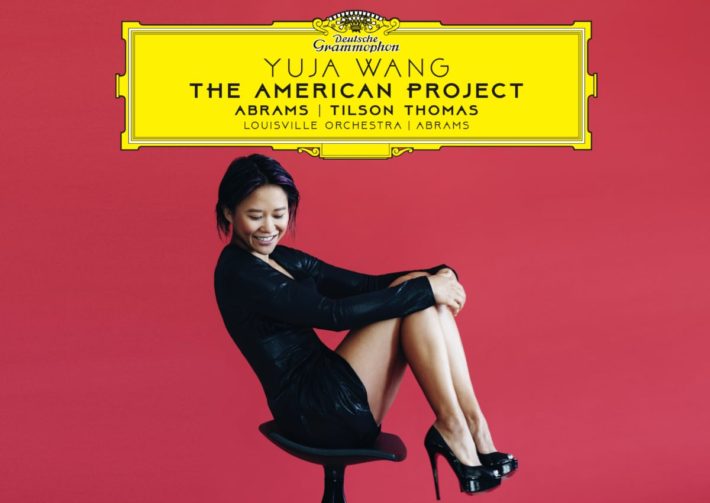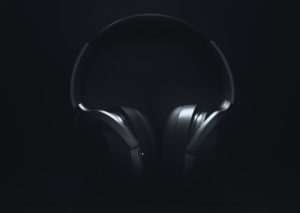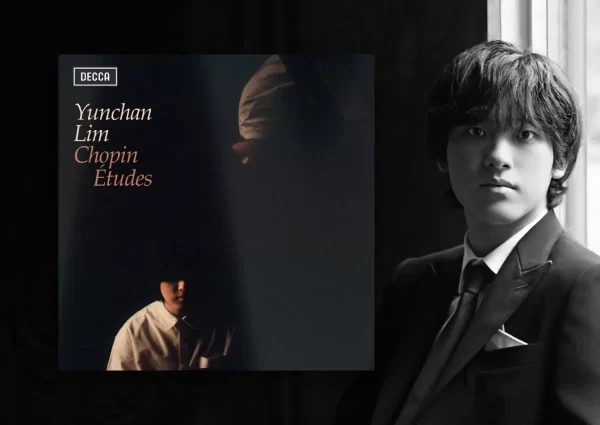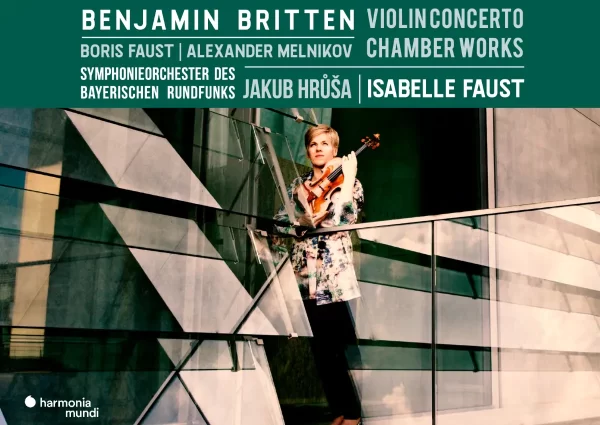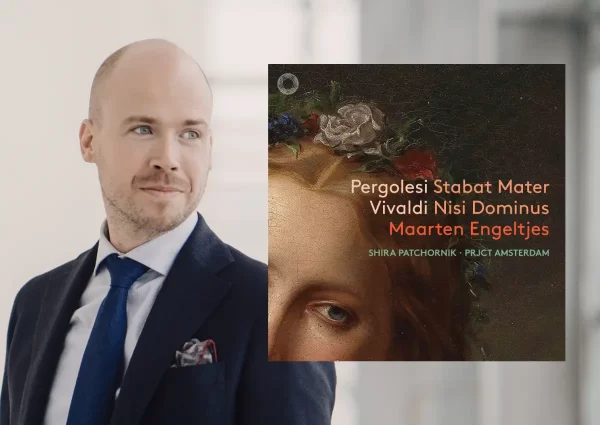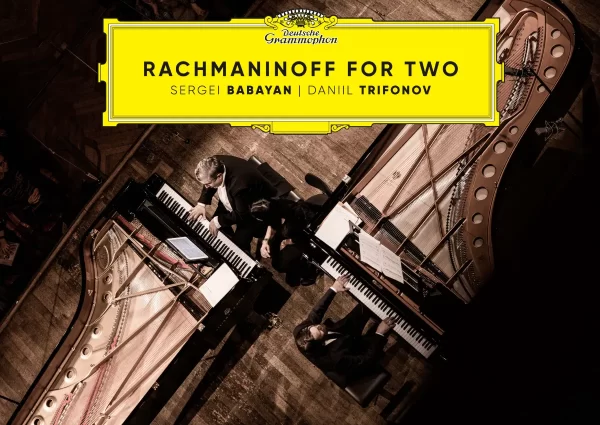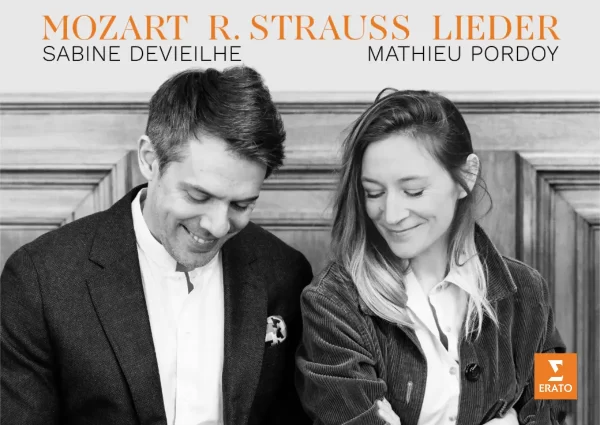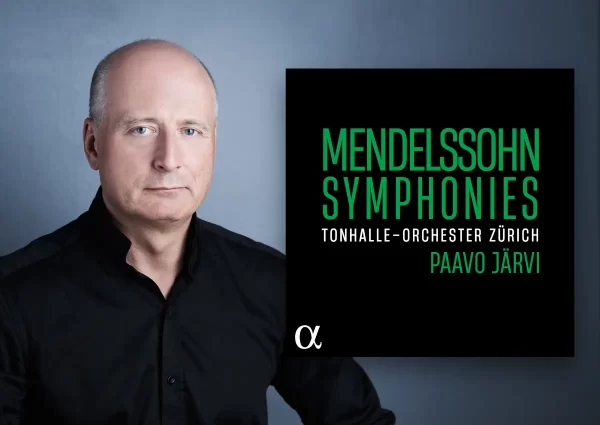Yuja Wang’s new album draws inspiration from a friendship forged with a fellow Curtis graduate, Teddy Abrams. During their time at the conservatory, Abrams was a conducting major; however, he recalls multiple occasions playing orchestral reductions of concerti alongside Wang at her lessons. While Wang would embark on her solo career, Abrams (also a clarinetist and composer) found his home with the Louisville Symphony, where he was appointed Musical Director in 2014. Paul Kilbey’s liner notes explain that the duo’s original idea involved recording Gershwin’s Rhapsody in Blue with Abrams writing a companion piece. A fortunate change in course yields something more unique: a concerto he wrote for his friend, paired with a 2016 solo piano work also written for Wang by Michael Tilson Thomas.
Those expecting the Gershwinian influence in Abrams’ Piano Concerto will certainly find it in the jazz language and harmonies. However, that’s where the similarities end. Rhapsody in Blue is undoubtedly vibrant and jubilant—but always maintains the suavité of the 1920s jazz scene. Abrams, on the other hand, seems intent on capturing a big-band feel, replete with swinging brass and a vivacious rhythm section. The Overture shows a well synchronized ensemble; perhaps it’s the influence of the mastering, but at times the sound balance feels almost too integrated. Greater electricity could be generated from a searing rawness in the trumpets’ reach for the high notes or a greater woodwind presence. The piano’s glissando and tremolo riffs at 2’16”, however, do bring about a brazenness which helps transport us from soundstage to jazz club.
Cadenza I makes it clear that Abrams is not only familiar with, but also encouraging of Wang to showcase her virtuosity. If we go by the insistent bassline and crashing chords, she’s clearly not holding back—totally appropriate for the character of the work. However, having fun does not equate to carelessness: we can still hear clarity and precision in the right hand runs. The middle section takes an interesting turn in character, gravitating away momentarily from the jazz. In its place is something more lyrical yet dissonant.
Related Posts
- Review: Yuja Wang, Gautier Capuçon, Andreas Ottensamer – Works by Rachmaninoff & Brahms
- Review: Franck and Chopin – Cello Sonatas – Gautier Capuçon, Yuja Wang
- Review: “Blue Hour” – Andreas Ottensamer and Yuja Wang Play Weber
The Orchestra Break (track 5) is indeed a nod to the big-band texture, putting the brass, winds, and rhythm sections on display. It provides an anticipatory buildup to the ensuing Exploration, where soloist and ensemble work seamlessly to bring out peppery staccatos and a quick-changing array of shifting textures, moods, and melodies. This movement admittedly has a bit too much stimuli compacted in a short space, but the performers deserve all the credit for their unfailing energy throughout.
The hodge-podge of the Exploration leads into Cadenza II, which is as much a compositional showcase as it is a pianistic one: by now, it’s evident that Abrams’ work aims to traverse multiple genres and styles. What we have here feels slightly more “classical,” if you will, with scintillating arpeggios and octaves that one might hear in the cadenza of a neo-Romantic concerto. Just like the previous Cadenza, Abrams does give us a welcome, albeit short respite from the hard-hitting virtuosity. Wang’s approach to the quiet passage staring at 2’50” has nice hints of contemplation and nostalgia. A somewhat similar character is reflected in the Relaxed segment (track 8), with the first half having sparser textures (and a chance for the solo woodwind to come through), before kicking off a fuller orchestral section that calls to mind small-screen cinema music.
Michael Tilson Thomas’ “You Come Here Often?” is a sensible companion work that balances out the much heavier Piano Concerto. Although this solo piece does have its pronounced moments especially toward the end, the overarching feel is light and, true to the title, inquisitive.
With Wang’s command of a wide range of repertoire, her affinity for the jazz genre doesn’t come as much of a surprise. It’s nice to hear how she and the ensemble really go for it throughout. Enthusiasm and joy are the heart of the performances, and listeners will find themselves wanting to keep up.

The American Project
Yuja Wang – Piano
Louisville Symphony Orchestra
Teddy Abrams – Conductor
Included with an Apple Music subscription:
Read more classical music reviews or visit The Classic Review Amazon store
Follow Us and Comment:
Get our periodic classical music newsletter with our recent reviews, news and beginners guides.
We respect your privacy.

